
Would it surprise you to know you are already a genius?
Can intuition and creativity be quantified the same way we quantify intelligence with IQ?
For years genius has been thought to be unattainable for many of us if we haven’t scored a high enough percentage on a standardized intelligence test.
There are many tests to assess this, such as the Wechsler Adult Intelligence Scale, the Stanford-Binet Intelligence Scale, and the Peabody Individual Achievement Test. 100 is called average IQ and people whose IQ is more than 140 are considered geniuses.
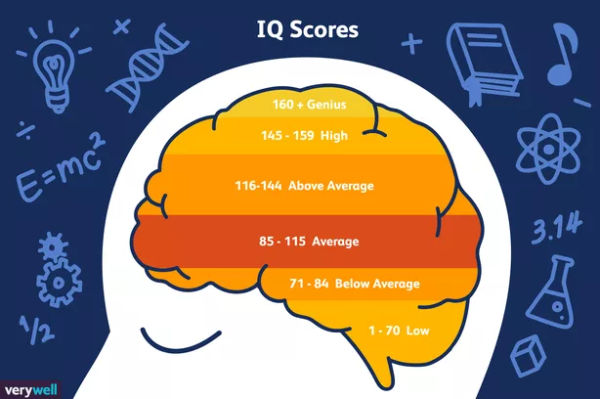
However, the idea that IQ and genius are related has no substantial foundation to support it.
The primary difference between highly intelligent people and geniuses is found in original creative output. Genius continues to push its fields into new, uncharted waters, navigating a route no one else can see yet.
Arts, sports, entertainment, fashion, design, and philosophy are all fields that rely on intuitively creative thinking. And while there can be crossover into rational thinking in some areas, when someone shows creative proclivity in math, science, engineering, programming, and even medicine, the default societal standard is to associate these individuals with rational thinking since findings in these fields are based upon empirical conclusions.
Yet when we come across outliers like Einstein, Faraday, Newton, Curie, Farnsworth, Ramanujan, Tesla, or Doudna, who bend or break the conventions of these fields by thinking in abstracts, they continue to show us that there is another way for breakthrough thinking, and we applaud their different thinking style as genius.
Society tells us that unless we are proven to score high on an intelligence test, we cannot be included in this group of breakout thinkers. At least according to societal standards.
But what if we have been thinking about this all wrong?
Creative aptitude refers to the artistic mindset, incorporating imagination, inventiveness, playfulness, and experimentation. The creative mind is allowed more freedoms and luxuries of non-absolute thinking. Artists have different styles based upon nothing more than imagination and unique perspectives.
But we still don’t give creative endeavor its due when society prefers and encourages the standards of a degreed or certified individual.
Yet when a radical breakthrough idea creates a new industry or changes an existing one, when it shows viable achievement or yields billions in profit, we still tend to side with the more rational and logical enterprise, concluding this radical exception is not the norm, and therefore should not be encouraged.
In terms of genius, there is no absolute right or wrong, but there is a propensity to explore, imagine, create, experiment, philosophize, and ponder, which are all related to the intuitive mindset.
Perhaps in this light, intelligence is perception, whereas genius is discovery.
Currently, there are tests for intelligence, creativity, curiosity, personality, emotional intelligence, and career aptitude. Creativity does have a scale of measurement, which is less about measuring one’s intelligence, and instead indicates which areas of creativity one might excel in.
There is no test (yet) to competently indicate what level of genius one has. However, like the creativity type indicator, a test could be devised to indicate what type of genius you are.
The issue is that we still confuse intelligence and IQ with genius, and they are separate. Intelligence (according to current testing) uses indicators from the rational mindset, for aptitude in logic, cognitive ability, critical analysis, reasoning, conceptual thinking, spatial cognition, verbal and nonverbal subsets, quantitative reasoning, visual-spatial processing, working memory, and fluid reasoning.
None of this, however, accommodates any form of accurate measurement for creative or intuitive thinking.
Genius comes from the intuitive mindset. This is where creativity, curiosity, imagination, philosophy, visionary ideas, explorative, connective, and divergent thinking all stem from.
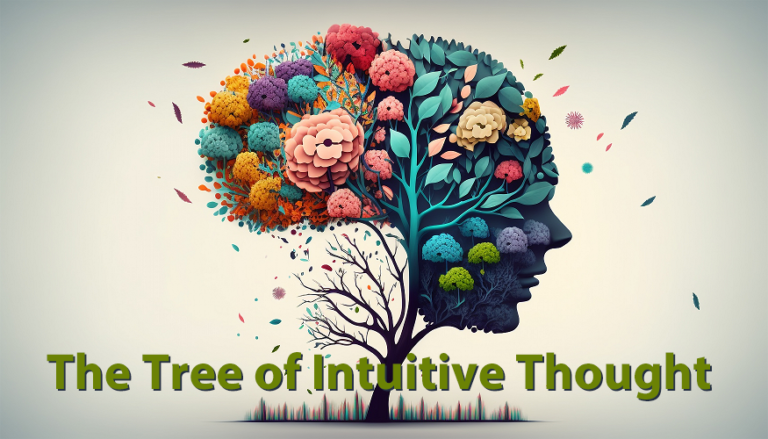
Yet, ironically, when someone displays an exceptionally high IQ (intelligence quotient), we label them a genius, even if they haven’t done anything remarkable with it other than score high on a test.
Standardized IQ, as we know it, is based primarily on reasoning and problem-solving, which is good for innovation. Genius, however, is one’s ability to see and create an almost ethereal reality of one’s own choosing through intuitive thinking. These are the ones we often refer to as visionaries.
Research indicates that everyone is born a genius. Initially, in the early stages, between the ages of newborn to around eight to ten years of age, we defer to our intuitive mind to help us navigate and figure out how the world works. Children don’t think rationally, specifically in the prime years of learning and development. At this young age, children rely on their intuitive mindset to learn, observe, create, fantasize, imagine, and play. It’s a vital part of their development and comprehension. This is the realm where creativity, exploration, imagination, and curiosity have no bounds. In this way, one is free to experiment, explore, and discover.
According to Noam Chomsky, children display creativity from virtually their first words. With language, they bring to bear thousands of rich and articulate concepts when they play, invent, and speak to and understand each other. They seem to know much more than they have been taught—or even could be taught.
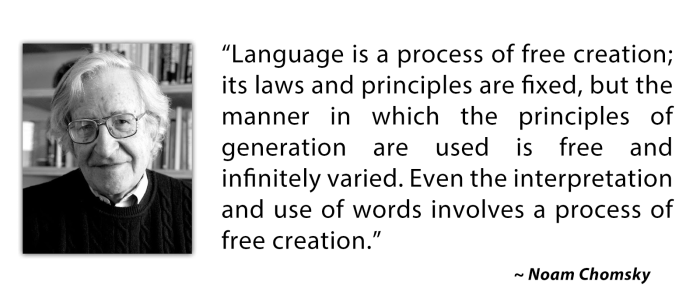
And according to Sir Ken Robinson, world-renowned education and creativity expert, societal educational standards weed out this more disruptive and creative thinking, deeming it a luxury that doesn’t serve our immediate educational needs, replacing it with a standardized rational mindset focused on nothing more than passing a child through to the next level.
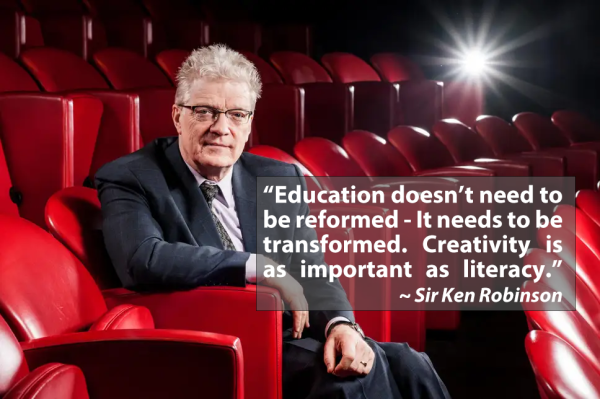
It’s one’s environment, role models, and belief systems, which all indicate whether someone will have the ability and encouragement to foster and maintain a strong intuitive mindset, while society attempts to diminish this type of thinking as a silly luxury, instead, encouraging a more rational mindset as the standard for survival and success.
Still, time and time again, the ones who successfully disrupt their fields of endeavor and lead us in a new direction are the ones who show us their unwavering genius.
The irony is that a new idea developed by a Disruptive thinker often yields ten times the benefits over a rational (innovative) idea. Innovation is typically an improvement on an existing concept in order to maintain profit and competitive advantage.
A new disruptive idea may or may not yield any reward, initially, but ultimately, when proven viable, these highly unique concepts show success in the form of massive profit, longevity, and a sustainable workforce.
Disruptive ideas include gasoline, automobiles, trains, planes, locomotives, radio, television, the Internet, computers, and now AI, to name a few. Again, these pursuits did not guarantee a monetary return, nor any form of success. But more often than not, they tend to yield benefits to mankind’s growth and evolution, and therefore prove useful and necessary to our advancement.
These intuitive disruptions can also include creative ventures that turned into billion-dollar industries, as exampled by endeavors that were initially deemed non-valuable, like children’s books, or comics, which both JK Rowling and Stan Lee’s concepts have ultimately been turned into multi-billion-dollar industries, employing tens of thousands of people who work in various fields and projects that keep these enterprises growing strong.

The same can be said for Steve Wozniak’s initially playful idea of figuring out how to make his personal computer concept viable. Initially, to him, it was a fun, creative idea that he wanted to share with his Homebrew club cohorts and eventually give the blueprints away. It was Steve Jobs who ultimately saw its massive potential and groundbreaking future.
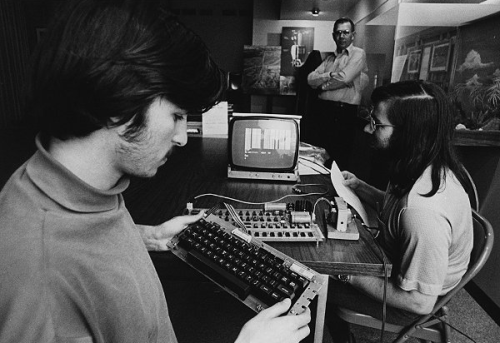
There is room (and a necessity) for both types of thinking (intuitive and rational). Einstein has been trying to tell us this for years. It is probably the reason we tend to say we only use 10% of our brain – In reality, if we develop both areas of thinking, we could obviously access more of one’s capacity.
Genius cannot and should not be quantified. It’s organic by its very nature. But it should be encouraged and fostered and become a required part of learning.
What are the significant differences between genius and intelligence?
- Genius resides in the intuitive mind and has the ability to access one’s creative nature. Intelligence swims in the realm of the rational mind and enables us to use rational, logical, and analytical reasoning.
- Intelligence is primarily about reasoning and problem-solving, whereas genius is about exploration, experimentation, and discovery.
- Genius is about utilizing unsubstantiated visionary thinking, whereas intelligence is more about innovation, meaning that one is a completely new, albeit ungrounded, idea, while the other incrementally improves on an existing concept.
The majority of us continue to use rational thinking as our default style, and therefore, have trouble naturally shifting to intuitively disruptive thinking as the standard, even though historically it proves to be the more powerful way to think.
Thousands of people throughout history, initially seen as radical or subversive, have learned to cultivate a stronger intuitive style, thereby allowing them to design and define the biggest and most insightful breakthroughs within their fields, leaving a deeper impact on how we live, grow, and evolve.
Somewhere along the way, we’ve lost our ability to foster this gift and have defaulted to survival thinking. This is the reason genius seems so rare and unique when instead it should be the standard.
There were times in history when we were even afraid of this genius style of thinking, thought to be extreme and too controversial. Socrates, one of the earlier Disruptors, was considered a corrupter of youth when all he was imparting to them was their own ability to think for themselves.
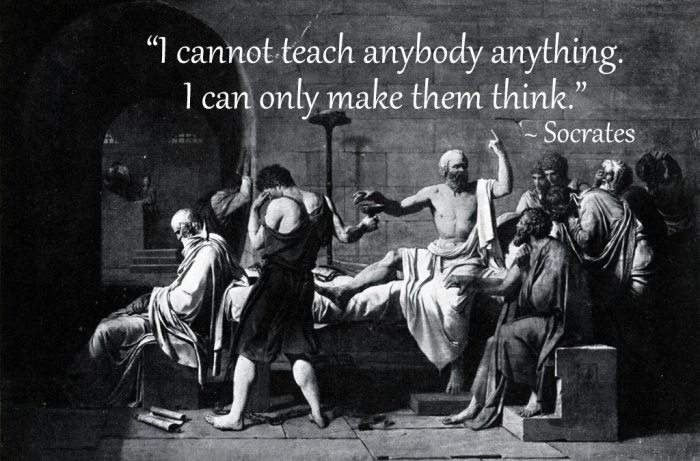
Free thought, of this type, was thought to be an indicator of chaos and anarchy when instead, it proved to be the very thing that promoted and evolved how we live, think, and act.
Time and again, even though society pushes back, this more radically disruptive thinking style has proven to be light years ahead of what many know to be innovative thinking. Intuition is where creativity, divergent thinking, imagination, philosophical reasoning, and visionary aptitude all stem from. This thinking style is a game-changer when it comes to our biggest disruptions and our most profound developments.
The real issue today is that civilization still sees rational thinking as the more grounded way to develop and maintain a civilized society. It deems anything on the intuitive side as frivolous, and unnecessary to our development, and to be used sparingly for entertainment or luxury purposes only.
Yet everything, and I mean everything we use today came from someone’s ungrounded imagination. It was only after these discoveries that we were then able to turn them into a viable business. And – this part is important to understand – once they were found to have merit, then innovation was required to keep them viable.
In other words, innovation cannot come before a disruption, period.
Think about anything you own or use. All of these things were dreamt up by someone allowed to cultivate his or her intuitive genius.
Since society is so focused on money, a more practical way to illustrate this is, when a disruptive concept becomes viable, it creates profit, or, to put it another way, attracts money. Innovation, on the other hand, in order to stay competitive and maintain its advantage, always chases money.
The formula for fostering genius is simple:
- Encourage creative thinking.
- Allow curiosity to be your guide.
- Don’t let others or conventional rules dictate your choices.
- Don’t follow the pack.
- Avoid letting your ego guide you.
- Begin trusting in your first thoughts. Even if you are wrong, initially, you will eventually strengthen this intuitive ability.
- Be willing to play, imagine, experiment, and be okay with getting it the trial and error phase.
- Use failure to course-correct along your journey.
- Allow yourself quiet time to daydream, imagine, and fantasize.
- Get in touch with your messy, playful side. Don’t worry about being organized. There is magic in the process. [P.S. Messy people have been known to be the most creative and statistically the most successful.] – Inc. Magazine: https://tinyurl.com/4d42p7cb
- Shut off any outside distractions, including technology for longer periods of time.
- Explore, travel, connect – These will be some of your greatest genius-promoting tools.
THIS IS KEY! – As adults, we tend to think about the outcome, which can stifle or limit great ideas. Children don’t think about the outcome, they don’t have preconceived notions like adults do, they think about the journey (adventure). If you don’t censor yourself by thinking about what the results will yield, you are more likely to take greater risks. This is the difference between convergent thinking (of the rational mind), and divergent thinking (of the intuitive mind). One limits you. The other is LIMITLESS.
FINAL THOUGHT:
We are all born with an intuitive mind. Nothing says you have to forgo rational thought. In fact, it is an important and valuable thinking style. By developing your intuitive mind (even if you think you don’t have any abilities to create, imagine, and invent), using the tools above, you begin to design a mind that is more enhanced. If you encourage yourself to improve your intuitive mind, thus allowing it to become the more dominant side, while still using your rational mindset, you encourage and grow your genius abilities. And here’s a tip: You only need a small portion of rational thinking to make your mind whole. Use this formula – 70% intuitive, 30% rational.
Why not find out what you are capable of? The future is there for you to create.